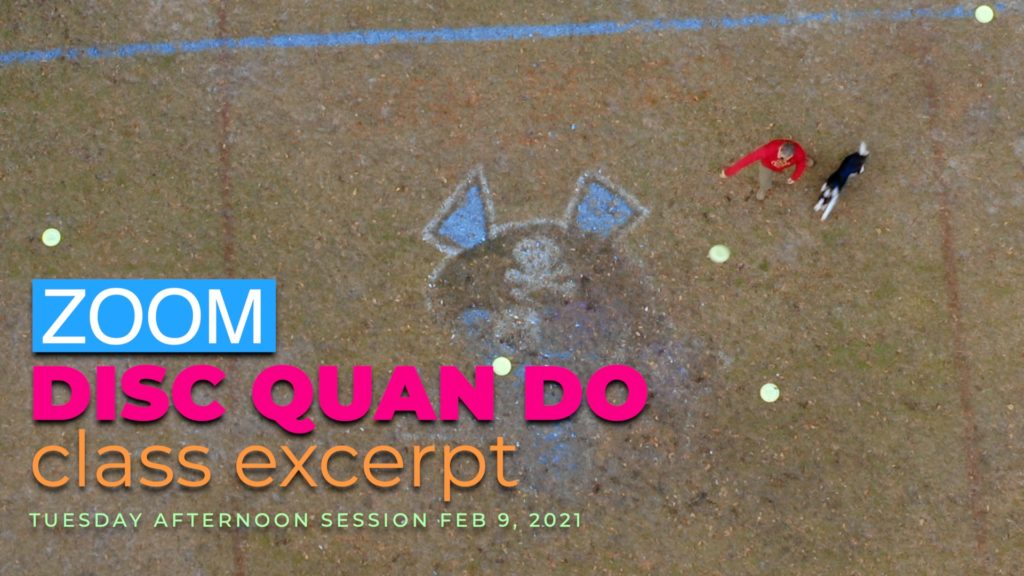
Class Excerpt: Epic Flank or Pass Challenge
Ron & Epic take the Flank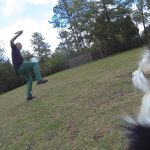 Out to the side of the handler is the Flank. If the dog is out to the handler's right or left the dog is on Flank. If the dog is moving with the... More or Pass
Out to the side of the handler is the Flank. If the dog is out to the handler's right or left the dog is on Flank. If the dog is moving with the... More or Pass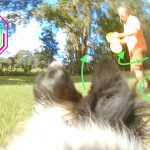 A Pass or Passing is a linear Team Movement maneuver that has the dog running or moving past the handler in close proximity, crossing or breaking the plane of the handler's body. Challenge during Tuesday Afternoon Disc Quan Do Class. Class members call out Flank or Pass and Eppie and Ron execute on demand. Nothing like phoning in your cues across the country – these cues came to Florida from Southern California and Austin Texas.
A Pass or Passing is a linear Team Movement maneuver that has the dog running or moving past the handler in close proximity, crossing or breaking the plane of the handler's body. Challenge during Tuesday Afternoon Disc Quan Do Class. Class members call out Flank or Pass and Eppie and Ron execute on demand. Nothing like phoning in your cues across the country – these cues came to Florida from Southern California and Austin Texas.
Rules of the Game
This is a two person game and the rules are simple. The player makes a throw to their dog and the observer calls out “Flank” or “Pass” when the dog catches. The player then executes either a Flank or a Pass to their dog.
Simple, right?
Fielding Questions: Handling the Dog or Letting It Happen
The discussion at the beginning of the video about handling the dog into the Pass (or the Flank) is a key goal of this game. Learning to handle and wrangle the dog, directly, on the fly is a great benefit for disc dog flatwork scores and competent Team MovementTeam Movement is how dog and handler move, as a team, out there on the field. It is a judging category in some organizations and certainly is a focus of many judges, players,... More.
As you get more experience playing this game, if you go after the Best Practices we discussed in Marty’s Flank or Pass Challenge handling the dog will become easier and more natural and your flatwork and Team Movement skills will improve and your dog’s ability to take your cues and respond to them will improve as well. This is a tremendous exercise for Team Movement.
Phoning It In – Timing
Working this remotely with the observer not being able to see the catch is tough, both for the observer and the handler on the field. This leads to a bit of a late call.
It’s cool, making a late call is what I would do to challenge someone or to make the game more difficult, but it’s not a great way to illustrated the game.
Handling Late Calls or Smoothing Over Mistakes
If you get a late call from your observer or get frozen like I did at 3:09, you don’t need to stop and reset – although you totally can, it’s cool.
You can also just pull the dog around a bit and keep things moving. The choice is yours. It is a good idea to avoid restarting all the time, though. This will happen on the disc dog field with you or your dog at some point in time, so you might as well get used to it.
Latent Drop is Trouble
This game will be very tough if your dog has a latent drop or doesn’t drop well. It might be so tough as to not want to play it. It might be a better idea to work on tightening up the drop than playing this game.
That said, if you can’t play the game due to a latent drop, you might want to evaluate that and fix it. As a judge, especially in UpDog where Disc ManagementDisc Management is a disc dog term that describes management and organization of discs throughout the routine. Disc Management is a scored category in most disc dog freestyle organizations and has great impact... More for the Dog is a judged criteria, you might want to budget that into your score.
Handling the Drop on the handler’s terms so the team can perform is a big part of the game. If two teams perform, all things equal, a controlled cued Drop is superior to the drop happens willy nilly or is a limiting factor of play and should be taken into account.
Do some work and fix this problem. You don’t want to be forced into tricks or have your style stymied by mechanical problems.
Crossing Pass and Trigger
This game is important for our Disc Quan Do Class because it allows us to test our practical Crossing Pass Form, one of the flatwork forms of Disc Quan Do.
The Crossing Pass is a quality expression of disc dog flatwork that has wonderful practical applications for Team Movement. It allows the handler to trigger the Passing maneuver and control and harness the dog’s movement.
Handing Over and Turning Off Executive Function
Executive function describes a set of cognitive processes and mental skills that help an individual plan, monitor, and successfully execute their goals.
https://www.psychologytoday.com/us/basics/executive-function
The observer in this game is taking over the handler’s executive function. The observer is setting the plan and the goal. Turning over executive function allows the handler to dedicate focus to reading the dog and preparing for any situation. This reading of the dog and preparing for anything is great practice for handling the unexpected in live play.
Turning over your executive function to an observer also allows you, as a handler, to escape your natural patterns and step out of your comfort zone. It is not really possible to “try to be spontaneous”. Letting the observer call out your next moves makes it easy to avoid your typical patterns and experience new ones. It’s a great way to learn new things.
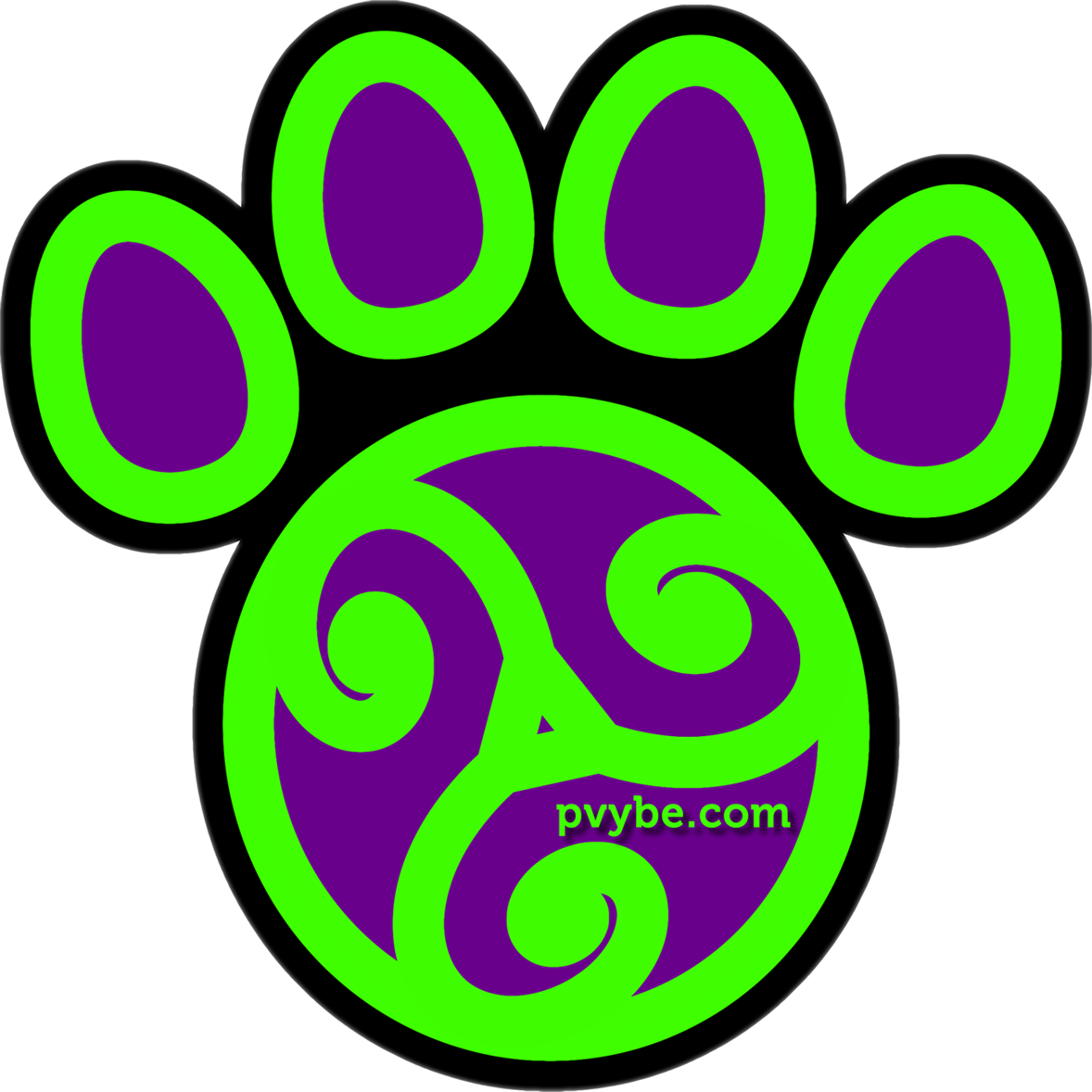


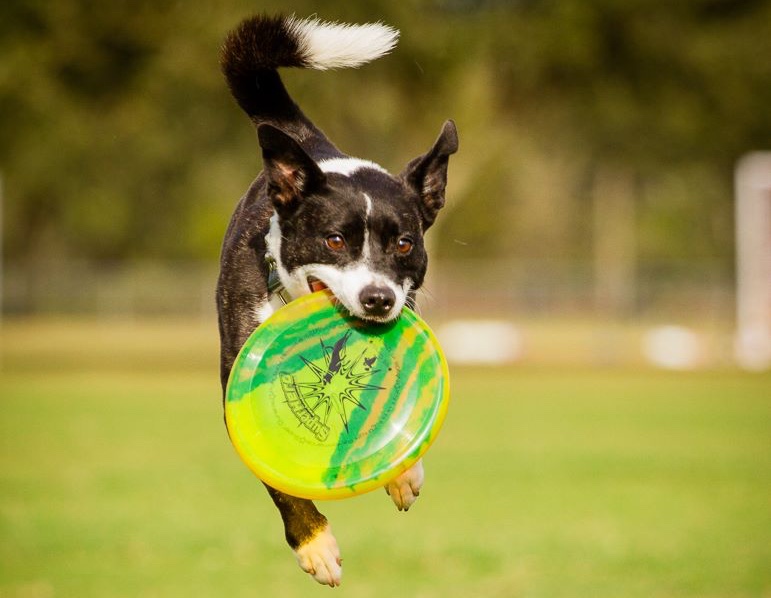
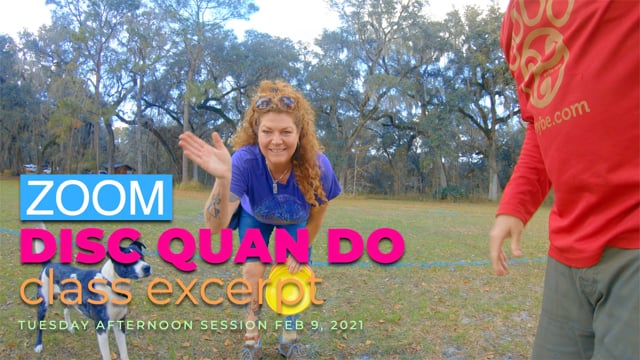

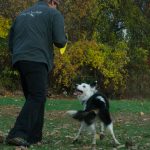
Great video. I bet Monkey and me could do this.